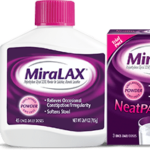Laxatives: Meaning, Types, How to Use Them, Side Effects

What are laxatives?
Laxatives are a group of drugs that either accelerate fecal passage or decrease fecal consistency. They are used primarily to treat constipation. The term is often used interchangeably with cathartics, purgatives, or evacuants, but there are subtle differences in the meaning especially between laxatives and cathartics. Laxatives can act by different mechanisms but there is considerable overlap between the different groups.
How do laxatives work?
The major mechanisms of action include enhancement of fluid retention by hydrophilic or osmotic mechanisms, decreasing net absorption of fluid through effects on the fluid and electrolyte transport in the small or large intestines, and finally an alteration of motility by inhibiting non-propulsive contractions or stimulating propulsive contractions.
What are the types of laxatives?
Laxatives are often placed in one of the following categories that include:
• Bulk-forming laxatives. These move through the body undigested, absorbing water and swelling to form stools. Commercial options of bulk-forming laxatives include Metamucil and Citrucel, which are available in powder and capsule form.
• Stool softener. These increase the amount of water absorbed by stools to make them softer and easier to pass. Stool softeners include docusate sodium and docusate calcium. They’re available in pill or tablet form.
• Lubricant laxatives. These coats the surfaces of stools and intestinal lining to keep in moisture, allowing for softer stools and easier passage. Mineral oil is an example of a lubricant laxative that’s available in liquid or enema form.
• Osmotic-type laxatives. These help the colon retain more water, increasing the frequency of bowel movements. Examples of osmotic laxatives include Miralax, Milk of magnesia, and glycerin. These are available as a liquid, caplet, enema, or suppository.
• Saline laxatives. These draw water into the small intestine to encourage a bowel movement. Magnesium citrate is one type of saline laxative. It’s available in pill form.
• Stimulant laxatives. They speed up the movement of the digestive system to induce a bowel movement. Stimulant laxatives are available as tablets, pills, powders, chewable, liquids, and suppositories under brand names like Ex-Lax, Senokot, and Dulcolax (Bisacodyl).
Over-the-counter laxatives begin to work within a few hours or may take a few days to take full effect. Though over-the-counter laxatives can be very helpful in alleviating constipation, using them too often can cause electrolyte disturbances and changes in body salts and minerals.
If you’re looking to achieve regularity, try incorporating some natural laxatives into your routine. They can be safe and inexpensive alternatives to over-the-counter products and have minimal side effects.
How do I safely take laxatives?
Before you take a laxative, read the directions on the drug facts label. This will tell you how much medicine to take and how often to take it. If you have any questions about how much medicine to take, call your family doctor or pharmacist. Keep a record of the medicines you are using and when you take them. If you need to go to the doctor, take this list with you.
Follow these tips to make sure you are taking the right amount of a laxative:
• Take only the amount recommended on the medicine’s label. Don’t assume that more medicine will work better or quicker. Taking more than the recommended amount can be dangerous.
• If you are taking prescription medicine, ask your doctor if it’s okay to also take a laxative.
How long can I use laxatives?
Laxatives are not for long-term use and if not effective after one week a physician should be consulted. They should not be used to relieve gastrointestinal symptoms of unknown causes. Depletion of fluids and electrolytes may result from their chronic use.
What are the risks associated with the use of laxatives?
There are several risks associated with the use of laxatives these includes:
• Interaction with medications. Your medical history and the medications you’re taking may limit your laxative options. Laxatives can interact with some antibiotics, and certain heart and bone medications. Read labels carefully. If you’re not sure whether to try a particular laxative, ask your pharmacist or doctor. Don’t exceed recommended dosages unless your doctor tells you otherwise.
• Complicating conditions. Laxative use can be dangerous if constipation is caused by a serious condition, such as appendicitis or bowel obstruction. If you frequently use laxatives for weeks or months, they can decrease your colon’s ability to contract and actually worsen constipation.
• Precautions for pregnant women and children. Don’t give children under age 6 laxatives without a doctor’s recommendation. If you’re pregnant, ask your doctor before using laxatives. Bulk-forming laxatives and stool softeners are generally safe to use during pregnancy, but stimulant laxatives may be harmful.
If you’ve recently given birth, consult your doctor before using laxatives. Although they’re usually safe to use during breastfeeding, some ingredients may pass into breast milk and cause diarrhea in nursing infants.
The osmotic laxatives and especially the stimulants have strong laxative activity and can produce serious adverse effects. The bulk-forming laxatives are mild laxatives with few adverse effects. The stool softeners also produce few adverse effects and are usually safe but potentially can have serious problems.





